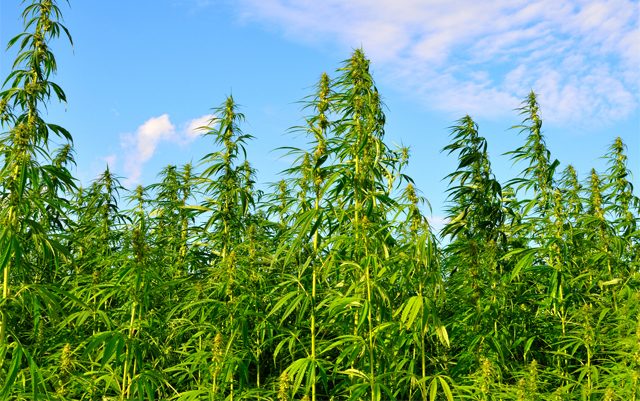The path to hemp legalization in Ohio has been rather dramatic, considering the fact that we are talking about an agricultural product and not “Keeping Up with the Kardashians”. One of the last states to enact hemp legalization, Ohio is now playing catch up and officials are trying to get things squared away before next year’s planting season.
I got a chance to speak with Tim Johnson from The Ohio Cannabis and Hemp Chamber of Commerce, and he identified a list of 10 concerns with proposed hemp regulations in the state:
1) The licensing fees for cultivation and processing seem fair but involve many steps compounding fees that add up.
2) Lot sizes start at a minimum 1/4 acre and expand to unlimited acreage. A concern of big business dominating over small Ohio farmers.
3) Yes, Ohio still believes in a lifetime of punishment for one’s past non-violent criminal convictions and guilty pleas, thus the background checks.
4) Testing and retail are still under construction with concerns of FDA/FTC intervention on consumable products.
5) Hemp is still classified as OTHER, being a drug of concern, which may provide a loophole for the Ohio Pharmacy Board to step in at a later date and declare some control of the program. Ohio simply will not recognize hemp as a commodity as the Agriculture Improvement Act clearly classifies hemp.
6) Home or personal cultivation and processing are forbidden adding the burden of government overreach regulating a commodity affecting the general public participation.
7) The issue of Law Enforcement training from a proactive approach to update their training in respect to identification, probable cause, criminal statutes and incident handling of the new program is a concern.
8) The 0.3% or less THC is a concern as to flexibility in should a crop be destroyed or permitted for use in the industrial sector.
9) The overall stigma of hemp still remains an interest of propaganda to many wishing to enter the industry.
10) The over-reactive safety concern of consumable products for many remains a lack of research.
“Overall the Agriculture Director seems determined to move ahead with creating the safest, most productive, consumer-friendly and participant fair program in the country with the tools afforded to do so in the Ohio Hemp Program,” Tim told The Marijuana Times.
Progress in Ohio mirrors progress on the federal level as the USDA recently published their interim final rule and opened up a public comment period between now and the end of the year. An interesting part of the new rule involves what is being called a measurement of uncertainty when it comes to THC test results that would allow some leeway above the 0.3% limit.
“This industry is going to explode in Ohio despite the over regulatory rules,” Tim told us. “Farmers and ancillaries alike will adjust and address changes as the program matures. The OAD does have until the end of January 2020 to complete the rule-making process, however, it appears the diligent work of the OAD may initiate the licensing process sooner.”
It certainly is an exciting and interesting time to be in the hemp industry in the United States. After lying dormant in hemp cultivation for several decades, American farmers are once again planting the seeds of a versatile industry with almost limitless potential.







Ohio citizens should tell the Ohio Cannabis and Hemp Chamber of Commerce that Points #3 and #6 directly violates Section 1 of the 14th Amendment that was ratified by the states.
3) Yes, Ohio still believes in a lifetime of punishment for one’s past non-violent criminal convictions and guilty pleas, thus the background checks.
6) Home or personal cultivation and processing are forbidden adding the burden of government overreach regulating a commodity affecting the general public participation.
14th Amendment, Section 1.
All persons born or naturalized in the United States, and subject to the jurisdiction thereof, are citizens of the United States and of the State wherein they reside. No State shall make or enforce any law which shall abridge the privileges or immunities of citizens of the United States; nor shall any State deprive any person of life, liberty, or property, without due process of law; nor deny to any person within its jurisdiction the equal protection of the laws.